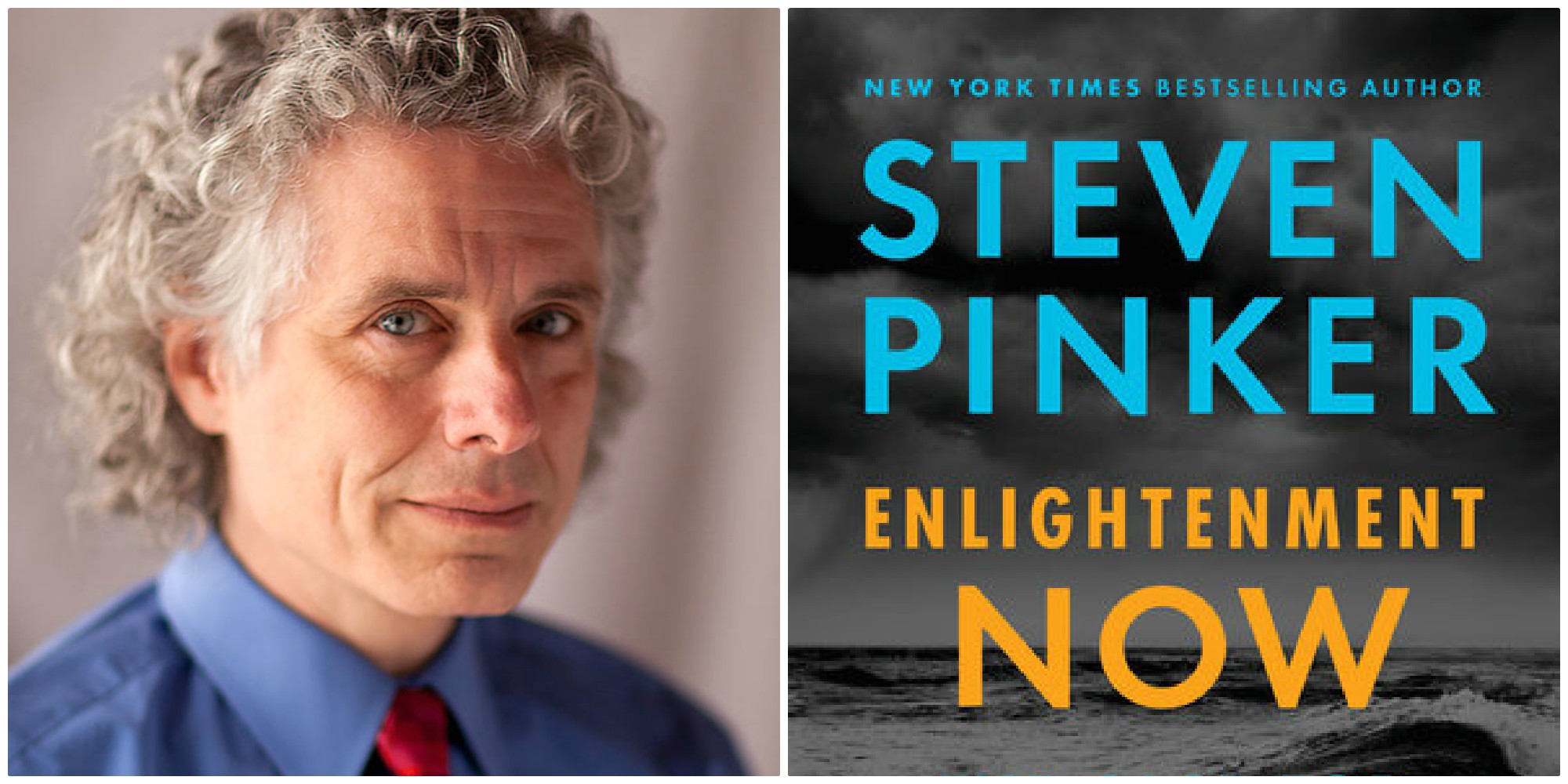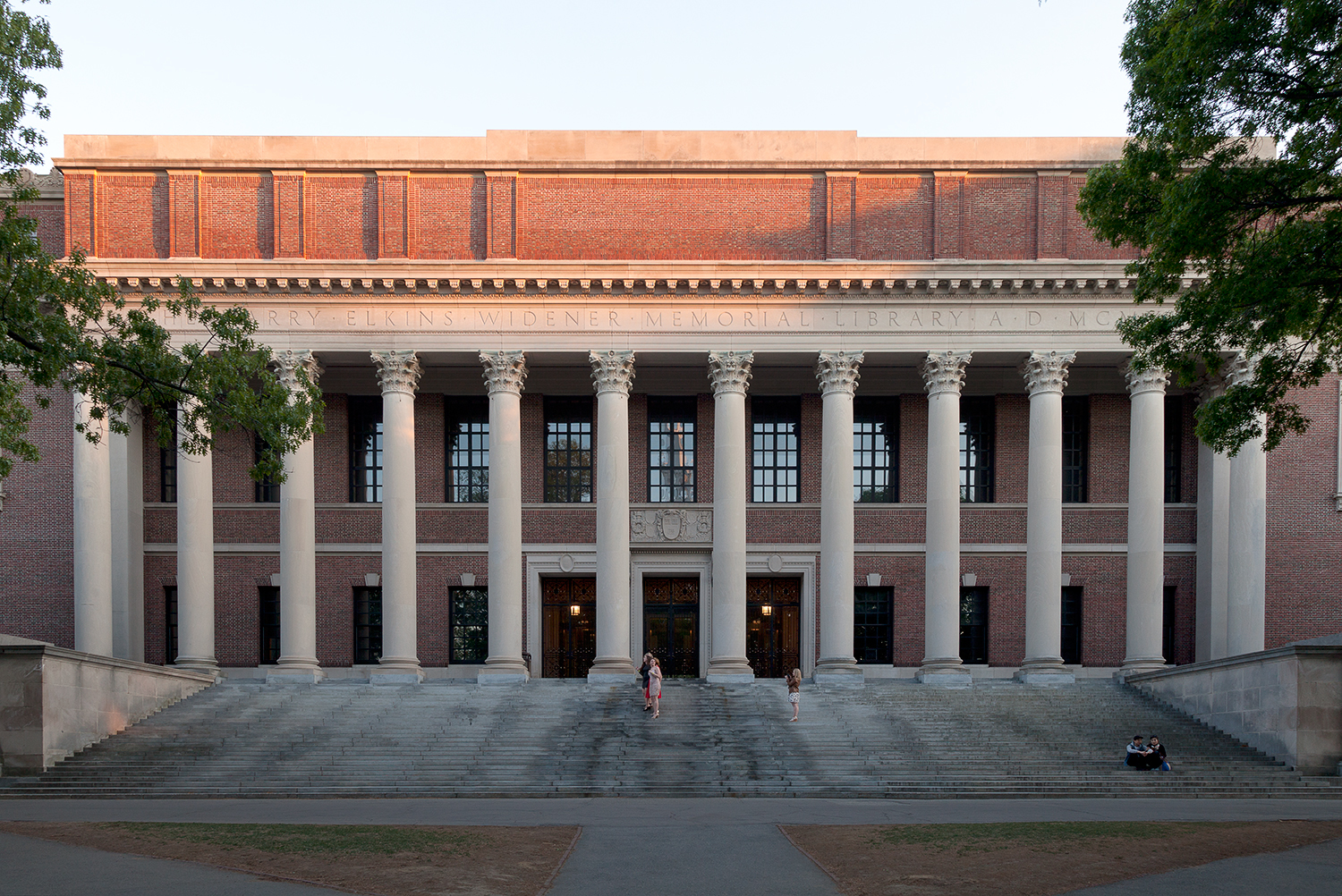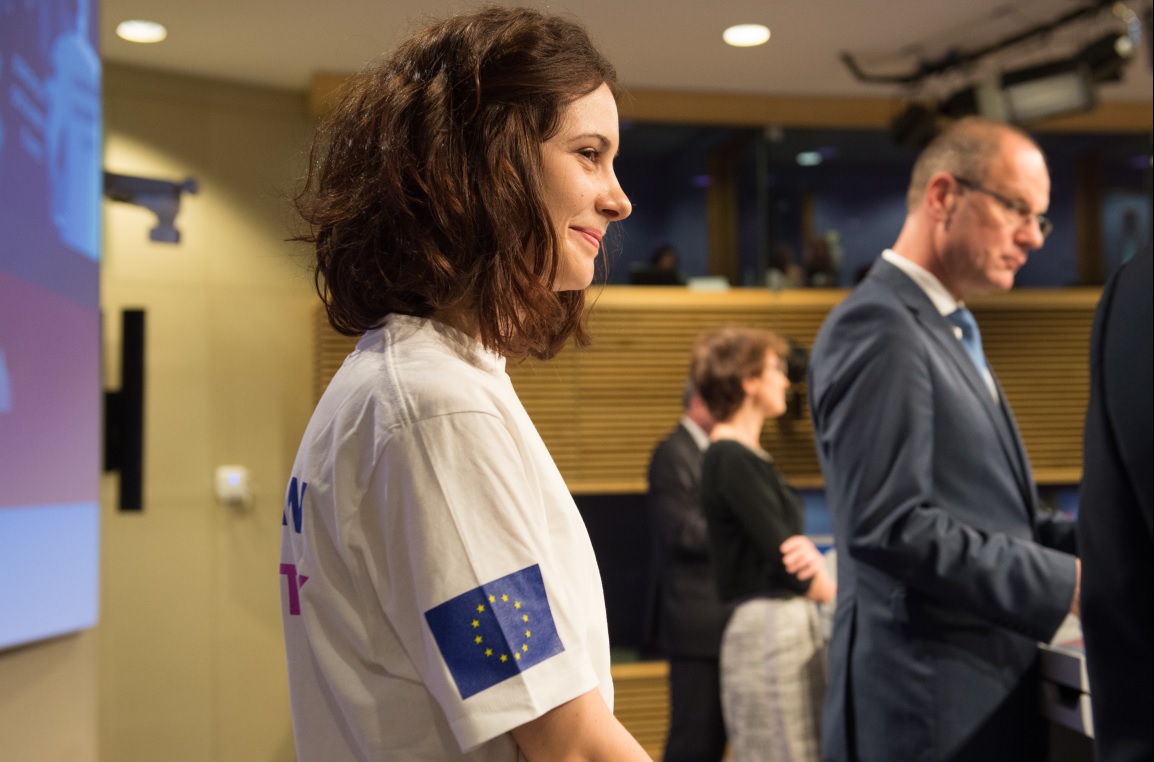Steven Pinker, an experimental psychologist who currently teaches at Harvard University where he is Johnstone Family Professor of Psychology, is, simply put, one of the most influential thinkers of our time. One of the world’s foremost writers on language, mind and human nature, he is the author of ten prize-winning books, notably The Language Instinct, How the Mind Works, The Blank Slate and The Better Angels of our Nature and he also writes for the New York Times, Time and other major media. He is on the editorial board of numerous scholarly and scientific journals, including Cognition, PLoS ONE and Daedalus.
His research on vision, language and social relations has won him world-wide recognition. There is no space here to list all the awards and honors he has received, including from the National Academy of Sciences, the Royal Institution of Great Britain, the Cognitive Neuroscience Society and the American Psychological Association. Foreign Policy has nominated him several times in its “Top Global Thinkers” list, likewise Prospect in its “The World’s Top 100 Intellectuals/World Thinkers” and Time magazine in “The 100 Most Influential People in the World Today”.
Now Steven Pinker is about to publish a new book Enlightenment Now and he has agreed to answer a few questions from Impakter magazine about his upcoming book and other matters of interest, such as the level of violence in the world today. What follows is an edited version of our email conversation.

Question: As an academic, what do you think about the general responsibilities of “intellectuals” in relation to Trump’s election victory?
To emphasize that reason, truth, objectivity, and fact-checking are mandatory in politics and journalism, while at the same time not expressing loyalty to a single ideological camp. Partisanship and political tribalism are the main enemies of reason.
How can we benefit from globalization? In such a sense, what do the concepts of “Global trade, “Global Citizen” and the UN Global Goals mean to you?
First, global trade, on average, makes everyone richer – that centuries-old lesson from elementary economics continues to be true.
Second, global trade also reduces the likelihood of war—it makes it cheaper to buy things than to steal them, and it makes other people more valuable alive than dead.
Third, some problems are inherently global, including terrorism, piracy, climate, migration, pollution, nuclear proliferation, and cyber-crime; they can be solved only by international cooperation.
Finally, people prosper culturally, economically, and personally when there is a free flow of ideas and people—that’s why cities and other hubs in networks of transportation and communication always been the sources of artistic and intellectual creativity. None of this rules out a role for regulation, just as in within countries, freedom does not rule out a role for law.
What do you think about “interdisciplinary studies”?
It depends on how it’s done, but in general it should be mandatory—academic disciplines are bureaucratic conveniences for university administrators who can’t fit everyone inside a single building, but the landscape of human knowledge is continuous. This is most obvious in the sciences, where old disciplines like “astronomy” and “ornithology” are almost obsolete, replaced by hybrids such as astrophysics, astrobiology, atmospheric chemistry, biochemistry, biogeography, biophysics, chemical biology, geophysics, geochemistry, molecular biology, and so on.
This does not mean that a new discipline called “interdisciplinary studies” should be encouraged, and it doesn’t mean that putting a physicist and poet on a panel will necessarily lead to insight. It just means that scholars should integrate levels of analysis, and draw ideas and methods from any relevant source. This should become second nature to scholars: As my former colleague Jerry Fodor once said, “the best interdisciplinary collaboration is within a single head.”
I look forward to reading your next book “Enlightenment Now”. What are your main points?
They are captured in the subtitle: “The Case for Reason, Science, Humanism, and Progress.”
The heart of the book is a demonstration or progress: 75 graphs showing that the lives of people have become longer, healthier, safer, happier, more peaceful, more prosperous, and more stimulating over the decades and centuries.
The rest of the book attributes this progress to the ideals of the Enlightenment—reason, science, and humanism, namely a value system that makes the flourishing of men, women, and children the greatest good, with precedence over the precepts of a religion or the glory of the nation.
Related Article: Let’s talk about War and Peace with Steve Killelea (Founder of Peace Index)
Editorial Board Questions:
In The Better Angels of Our Nature you delve into the question of violence in human nature, making the case that violence has, in general, declined overtime. With ISIS terrorism, the spread of “illiberal democracies” (Erdogan’s Turkey, Putin’s Russia, Duterte’s Philippines, Xi Jinping’s China etc) and conflicts rising everywhere as signaled by the worsening in the Global Peace Index, would you say the rise in violence over the past decade could be seen as an unfortunate break in the long-term trend? Can it be reversed with the “four better angels” you have identified in your book beating the “five inner demons”?
Any trend can be temporarily reversed, and that has been true for violence at certain periods in the past, such as the outburst of civil wars in the developing world in the 1960s through the 1980s, and an increase in violent crime in most Western democracies in those decades.
But the examples you give do not, by themselves, constitute an example of the decline of violence reversing, because you have just listed every example you can think of violence and repression increasing, and have omitted all the cases in which violence and repression have decreased—for example, the end to civil wars in Colombia, Sri Lanka, Angola, Chad, India, Peru, Algeria, and Iran, and an increase in democracy in Nigeria, Myanmar, Argentina, Tanzania, and several other African and Central American countries. Similarly, you cite the rise of ISIS, but you don’t cite the decline of Marxist and secessionist terrorist movements that led to a higher rate of deaths in terrorism in the 1970s and 1980s than we are seeing today.
Overall there was an uptick in war deaths from 2011 to 2014 because of the Syrian civil war, which has since come down a bit. And the overall Democracy-versus- Autocracy index for the world is at an all-time high, despite the horrible setbacks you mention.
In your book, The Blank Slate , you argue for the predominance of nature over nurture in the sense that language is “hard-wired” in the human brain. Given the advances in epigenetics that suggest there is a kind of “backward loop” between nature and nurture (with the possibility that traumatic experiences and our reactions to them get encoded in the DNA and passed onto the progeny), do you feel this opens up new possibilities that might require adjustment to the whole issue of natural selection/evolution or is it still too soon to tell?
No, this is completely wrong. First, there is no such thing as the question of “whether nature or nurture” determines a person’s character—nurture can only work through innate learning mechanisms, and no innate mechanism is insensitive to input.
Second, The Blank Slate did not argue for the predominance of “nature”—its subtitle was “The Modern Denial of Human Nature,” and it argued against the taboo on examining inborn tendencies in modern intellectual life, that is, the assumption that there is no such thing as human nature.
Third, traumatic experiences do not get encoded in the DNA and passed to progeny—at most, they affect the expression of genes, not their code, and any intergenerational transmission of these epigenetic influences are quickly reversed, if they exist at all (most of the studies involve mice, not humans; the studies in humans are squishy and unreliable). I discuss these questions in an Afterword to the 2016 edition of The Blank Slate.
“Fake news” and “alternative facts” are very much in the news these days,and they signal a deep polarization in American society, with Trump fans refusing to listen to the mainstream media, saying, as the President does himself, that it’s “full of lies”. In your acclaimed The Stuff of Thought: Language as a Window into Human Nature you discuss the use of metaphors, and explain the role of the methods of science and open debate to determine which metaphor is truthful. How would you classify “fake news”, can it be thought of as a kind of twisted metaphor? And if so, how to extirpate it?
No, “fake news” does not need such sophisticated analyses—it consists of outright lies and fabrications, which capitalize on people’s willingness to believe stories that affirm the righteousness and wisdom of their political team and the evil and stupidity of the other political team. (There’s also Donald Trump’s use of the expression “fake news” to refer to any information that is not flattering to him.)
The artful use (and sometimes twisting) of metaphor is, as you point out, an essential component of political rhetoric and persuasion (for example, the “invasion of Iraq” versus the “liberation of Iraq,” or “health care as a universal right” versus “the government taking over health care”). But the fake news phenomenon is different, a high-tech version of the conspiracy theories and malicious rumors of earlier decades and centuries, which we have not yet learned how to deal with.










